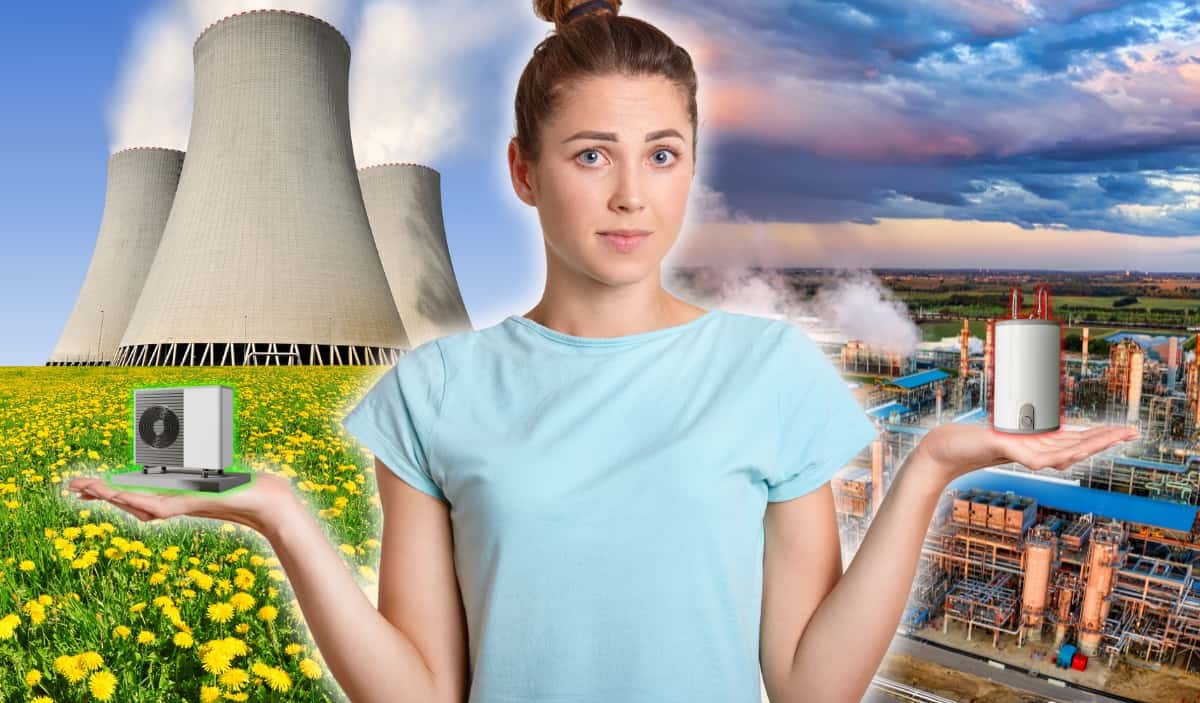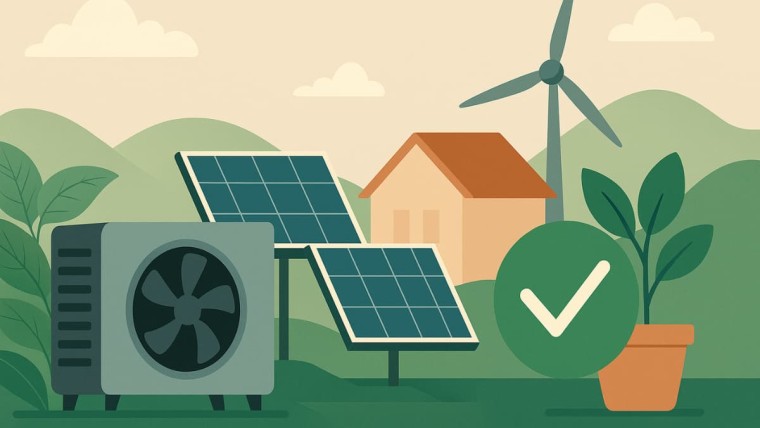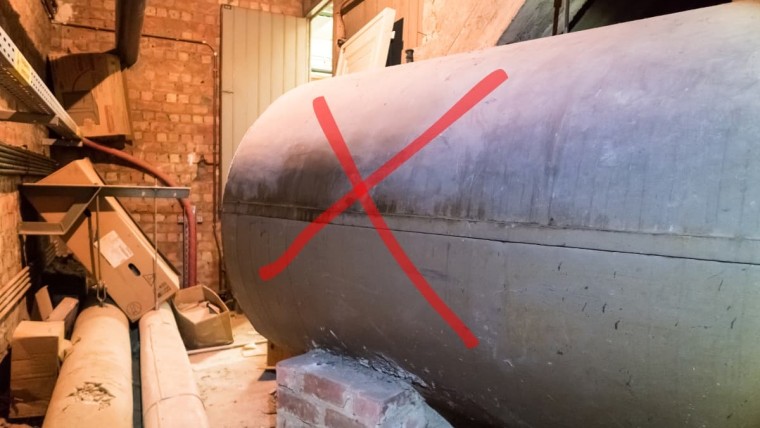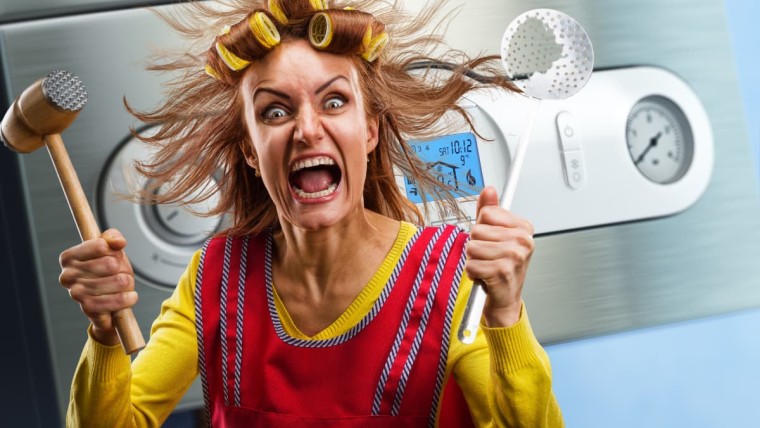Your oil-fired boiler is getting old and you're thinking of replacing it with a newer, more energy-efficient model. But you've been bombarded with talk of a heat pump. The government and its incentives, the companies and their teams of fitters with 25 years' experience promising to cut your heating bill by a factor of 4!
So it's only natural that you should ask yourself the question. What should I choose for my new heating system? The famous, modern, latest-generation heat pump or the good old oil solution, but with a modern condensing boiler?
As of July 1, 2022, the French government has banned the installation of new oil-fired boilers.or replacing fuel oil with oil. However, it is still possible to maintain and repair oil-fired boilers so that they can continue to be used.
So there's another level of hesitation: should you keep your old oil-fired boiler, or install a new heat pump?
Why keep an oil-fired boiler for heating?
The oil-fired boiler may be accused of all sorts of evils, but it's still a highly efficient and pleasantly warm source of heat.
The advantages of an oil-fired boiler
If you decide to keep it, maintain it and repair it if necessary
- Less work By choosing to keep your oil-fired boiler, you don't touch your installation, and you don't incur any labor costs. The only cost is maintenance.
- A system well mastered by installers For decades, oil-fired boilers have been installed and commissioned everywhere, so technicians are very familiar with them. This enhances the comfort of the system.
- Can be coupled with a heat pump. It is possible to couple an existing oil-fired boiler with a heat pump. The heat pump would provide the energy most of the time, except when the outside temperature is too cold and the oil-fired boiler needs to be backed up.
- High heating capacity With a heat pump's high output temperatures of 80 or 90°C, not only do you heat your rooms efficiently with fairly slim radiators, but you also have no problems with domestic hot water, which can always be supplied at the right temperature. Not to mention that you can keep your old radiators, whereas with a heat pump it's better to replace them.
The disadvantages of an oil-fired boiler
- An unpleasant smell The smell of fuel oil quickly invades the cellar and even the whole basement.
- Highly variable fuel oil prices and dependent on the speculative price of crude oil. The price curve for heating oil is a roller-coaster ride, and you have to think ahead to get it at the right price.
- A heating method that is by definition non-ecological Burning fuel oil means burning an exhaustible energy source, and therefore depleting our planet's resources. Moreover, burning fuel oil releases CO2, sulfur, nitrogen oxide and fine particles, which are partly responsible for excessive air pollution. Not to mention the danger of carbon monoxide if combustion is incomplete.
- Cumbersome fuel oil storage The oil tank often takes up space. Space that could be used for something else.
- As mentioned above, new oil-fired boilers have been banned in France since July 1, 2022, which makes them a "must-have". obsolete means of heating in the eyes of societyAnd it's becoming increasingly difficult and expensive to maintain and repair them. Having said that, just as we collect 2CVs or Panhards, we can take great pleasure in maintaining an antique, if we have the soul of a handyman.
Why choose a heat pump to modernize your heating system?
As a producer of heating energy from renewable sources, the heat pump fits in well with Europe's energy transition strategy.
What are the benefits of CAP?
- The heat pump captures around 70% of the energy needed to heat you from the outside air. This source is inexhaustible, renewable and free. This makes the heat pump a rather environmentally-friendly heating method.
- To create the same amount of heating energy as a purely electric radiator, a heat pump consumes around 4 times less electricity to run its compressor than an electric radiator, which simply dissipates heat through a resistor. In theory, your electricity bill for heating will be reduced by a factor of 3 or 4.
- There are different types of heat pumps: indoor, outdoor and geothermal. This enables This heating method can be adapted to all situations and budgets.
- Government bonuses are still quite substantial for this type of heating, which is part of the energy transition. You could receive several thousand euros to replace your oil-fired boiler with a heat pump. This bonus will depend on your income, and the work you undertake. Maprimerenov' has a budget of several billion euros for all these aids, and does its utmost to ensure that you are supported in replacing your heating system by certified professionals.
- You forget the smell of fuel oil
- You can also convert the room that used to contain the oil tank into a playroom, cinema or storage area...
- You've forgotten to plan your heating oil deliveries
- You no longer pollute the environment to heat your home.
The disadvantages of heat pumps
- The heat pump requires dependence on the power grid. More electricity, more heating. While there are renewable and autonomous solutions for creating electricity, they are still very expensive and difficult to couple perfectly with a heat pump.
- In the case of the outdoor air-water model, even though manufacturers are making ever greater efforts to make their machines sexier, the outdoor modules are not always the most attractive. damage the aesthetics of a home's exterior or a building.
- The heat pump is suitable for low water temperatures. In other words, it will be difficult to keep your old radiators, and at the same time achieve ideal performance. Heat pumps are ideal for underfloor heating or low-temperature radiators. If you keep your old high-temperature radiators, some heat pumps are capable of producing very high temperatures, but the coefficient of performance won't be optimal in these conditions.
- Although the heat pump is considered an environmentally-friendly heating method, it still requires electricity to operate. Electricity has to be generated, and not always under the most environmentally-friendly conditions, nor with the most spectacular yields. This may put the heat pump's coefficient of performance into perspective, in that the kWh you draw from the grid has already cost a fair amount of primary energy to exist (fuel oil, coal, gas... in France, mainly nuclear).
In a nutshell:
If the law now obliges you to switch to a heat pump, you still have the option of keeping your oil-fired boiler for another decade by investing in its maintenance. You can also take advantage of current grants to help households replace their oil-fired heating systems, and switch to a heat pump for less, if the advantages outweigh the disadvantages.
While a heat pump is an excellent, environmentally-friendly choice for replacing your oil-fired heating system, it's not the only option. You can also turn to wood-burning solutions, such as wood stoves or pellet stoves.

Julien G.
Juliena mechanical engineering graduate and specialist in climate engineering since 2009, has become a writer specializing in renewable energies, with expertise in heat pumps and photovoltaic solar panels for individual housing.
See all articles by this author






